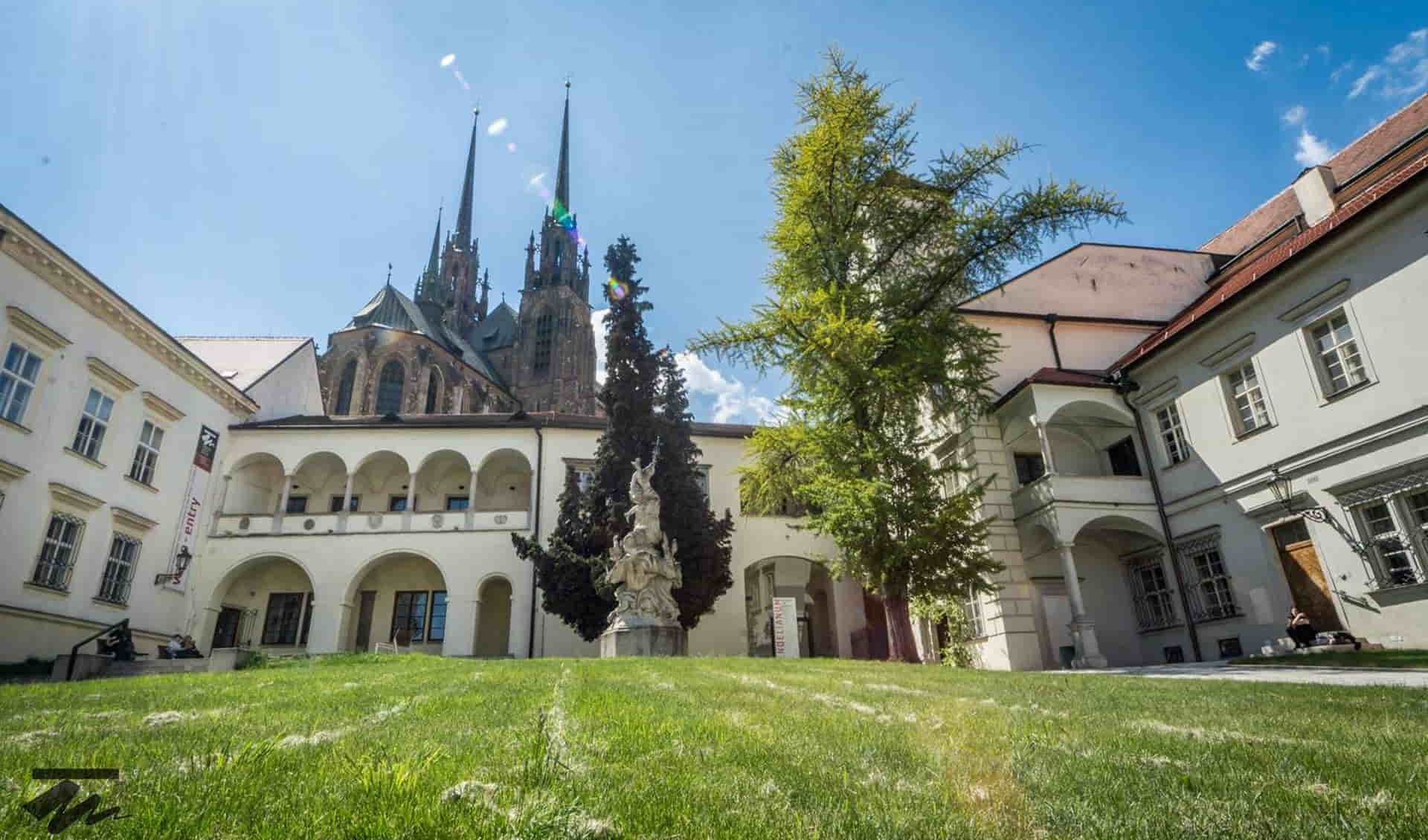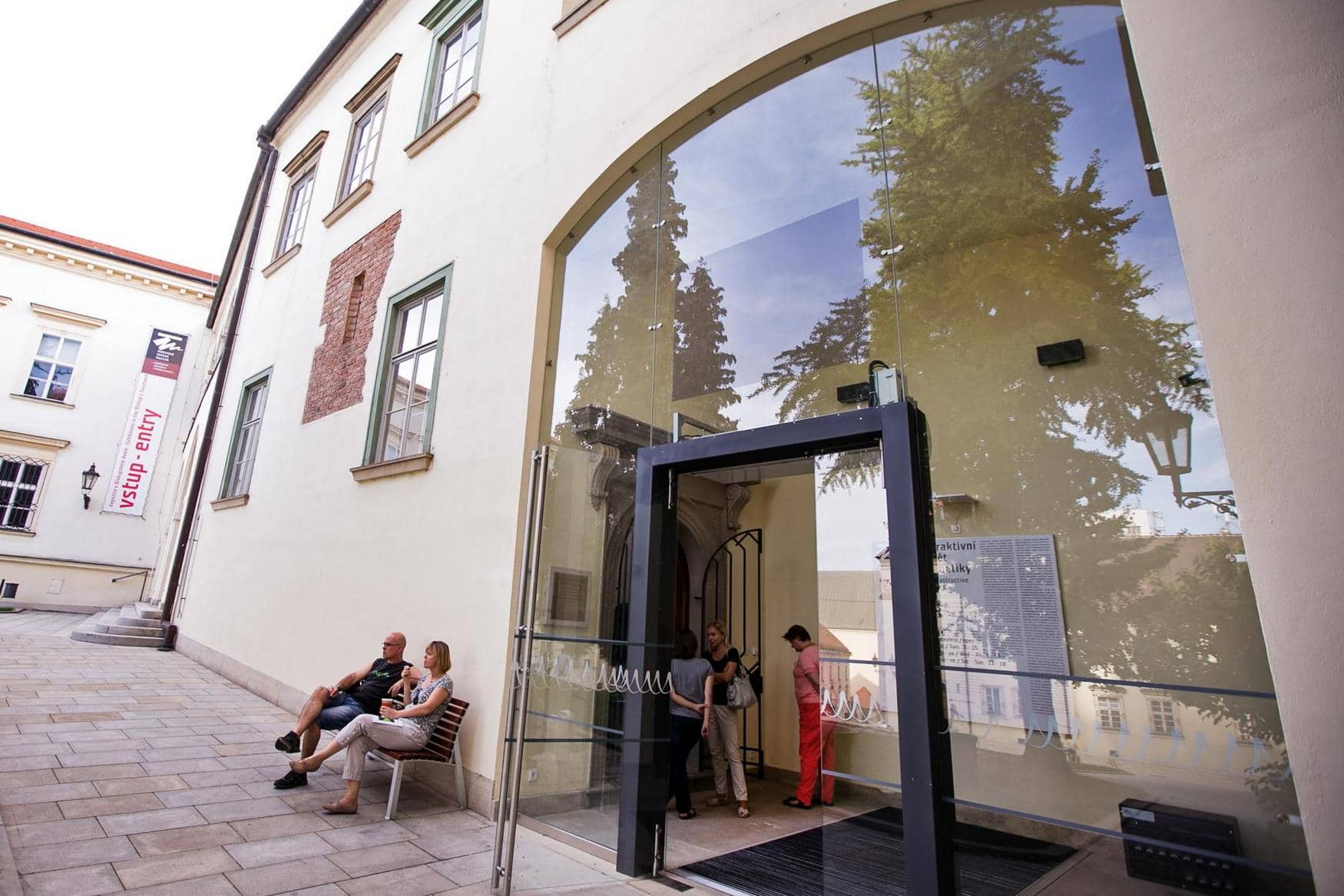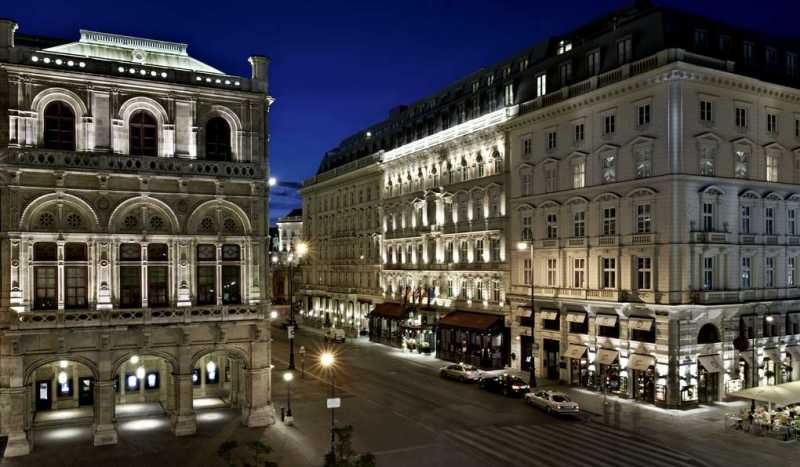Embarking on a journey through the charming city of Brno presents the unique opportunity to explore its rich historical landscape and dive into the world of science at the Mendel Museum. This museum, dedicated to the 'father of genetics,' Gregor Johann Mendel, offers a fascinating glimpse into the life and work of a man whose contributions have shaped our understanding of biology. Families are drawn to this educational gem, situated within the picturesque grounds of the Augustinian Abbey of St. Thomas, where Mendel once studied the humble pea plant, laying the groundwork for modern genetics.
The Mendel Museum provides an immersive experience for children and adults, with engaging exhibits that bring Mendel's groundbreaking experiments and discoveries to life. Whether tracing the timeline of Mendel's life, from his early years to his acceptance into the monastery or understanding the principles of Mendelian inheritance, the museum makes complex scientific concepts accessible to all ages. Visitors can walk through thematic sections, marvel at historic photographs, and view the foundations of Mendel's original greenhouse, where his famous experiments took place.
Contents
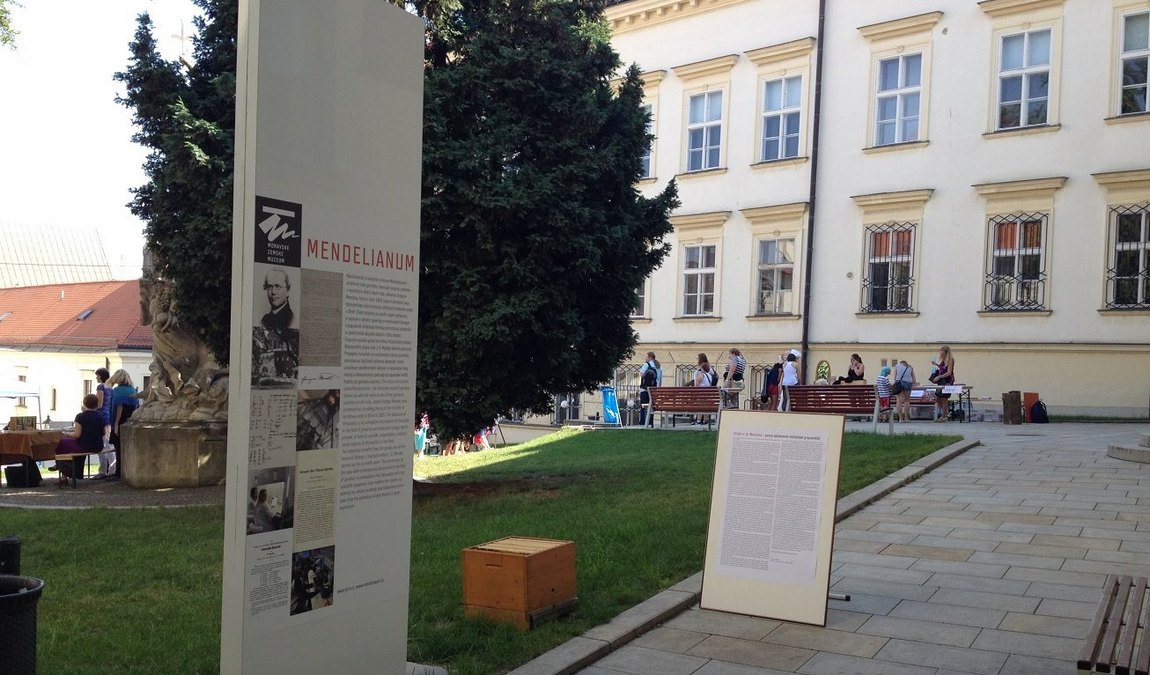 Photo: facebook.com/mendelianum
Photo: facebook.com/mendelianum
Encouraging the next generation's interest in science goes beyond textbooks; the Mendel Museum is a testament to that. It's a place where history and science converge, sparking curiosity and wonder in young minds. The museum stands out for its rich educational content and commitment to preserving the legacy of a man whose quiet genius revolutionized the way we think about genetics and heredity.
Here is Why Your Kids Will Find it Interesting
Mendel Museum is worth visiting with kids because it brings science to life in an accessible way for even the youngest minds. Nestled in the historical city of Brno, the museum stands where Gregor Mendel, the father of genetics, conducted his groundbreaking experiments. These experiments laid the foundation for modern genetics, a story beautifully unfolded at the museum.
Interactive Exhibits: Children of all ages, particularly those aged 8 and above, will be captivated by the interactive nature of the MENDELIANUM. Hands-on activities engage curious kids as they learn about inheritance and the famous pea plant experiments, transforming abstract genetic concepts into tangible experiences.
Historical Connection: Their world is expanded beyond the school classroom as they walk through authentic university grounds, linking history with modern-day science and enriching their understanding and appreciation for scientific discovery.
Educational and Fun: The museum's size is perfect for a family afternoon excursion, offering a balanced educational journey without overwhelming young visitors. The displays are thoughtfully curated to ensure information is digestible, making complex topics like Mendel's laws of inheritance approachable.
Children generally grasp more complex scientific principles from ages 8 to 12, making the Mendel Museum an inspiring and enlightening destination for families with children within this age bracket. Children connect with science uniquely and memorably by exploring the origins of genetics through miscellaneous fascinating exhibits.
History of Mendel Museum
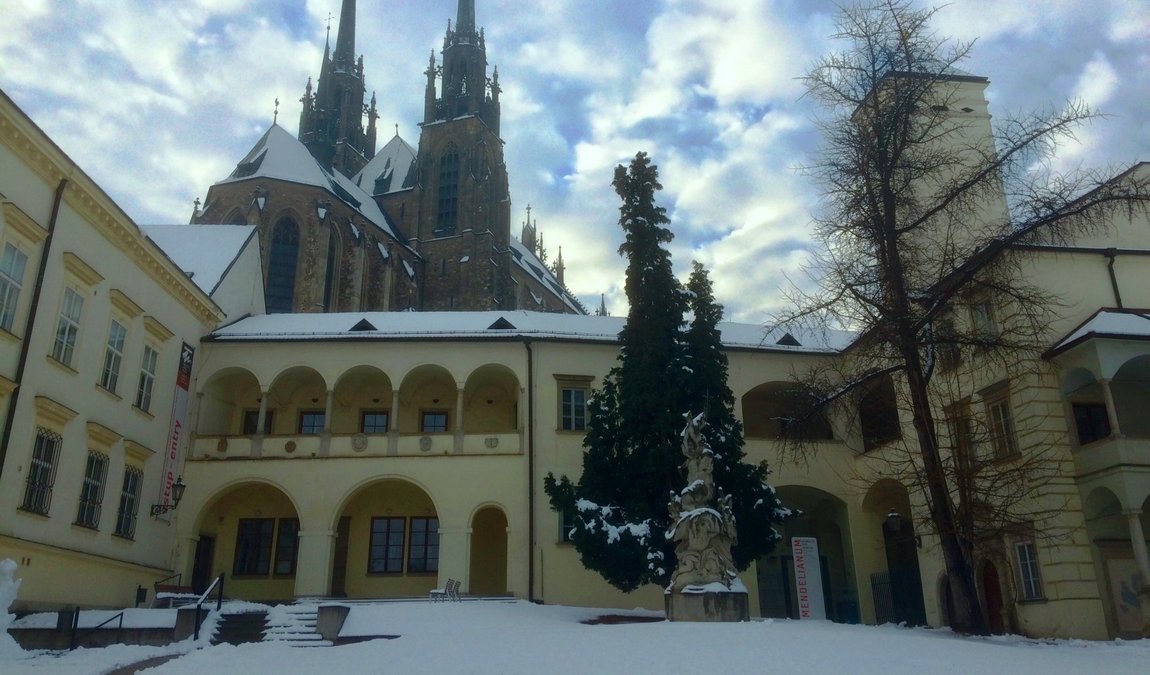 Photo: facebook.com/mendelianum
Photo: facebook.com/mendelianum
Tracing the journey of Mendel Museum offers a window into the world of genetics, grounded in where Gregor Mendel laid the foundations of modern genetics. Situated in the historic precinct of Old Brno, the museum stands as a tribute to Mendel's legacy, enveloped by the educational spirit of Masaryk University.
Foundation and Location
The Mendel Museum was established in 2002 as an institution of Masaryk University in Brno, Czech Republic. It finds its home within the storied walls of the Augustinian Abbey in Old Brno, a site closely linked to the life and work of Gregor Mendel, the father of genetics. Mendel, a monk of the Augustinian Order, conducted his groundbreaking experiments on pea plants in the abbey's garden, making this location deeply significant in the history of science.
Evolution of the Museum
Over time, the museum has undergone several renovations to further its role as a center of learning and a gateway to the life and studies of Mendel. It does more than showcase exhibitions; it provides a contemporary peek into Mendel's influence on modern genetics. Masaryk University has been instrumental in integrating the museum's offerings into its educational framework, ensuring that Mendel's legacy is preserved and continually explored.
The museum's evolution mirrors the growth in understanding the genetic blueprint that defines all living organisms and honors the monumental scientific contributions made by Gregor Mendel.
What was Gregor Mendel famous for?
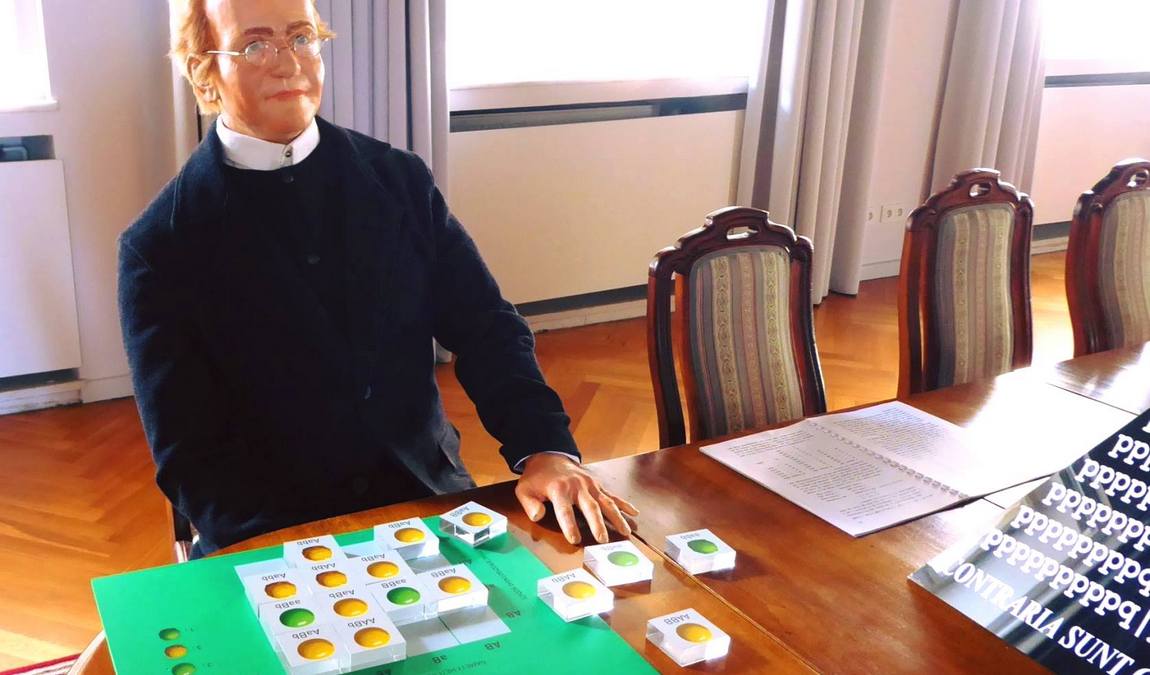 Photo: facebook.com/mendelianum
Photo: facebook.com/mendelianum
Gregor Mendel is revered as the Father of Genetics, a title he earned through his pioneering work in biology. While part of the Augustinian Order, his research formed the cornerstone of modern genetics.
Mendel's Scientific Work
Mendel's groundbreaking experiments at the St. Thomas' Abbey garden, now part of Masaryk University, involved meticulously cross-breeding pea plants. Through his Experiments with Plant hybrid studies, he established the fundamental laws of inheritance, including the concepts of dominant and recessive alleles. Mendel meticulously counted and accounted for the various characteristics of the peas, such as color and shape, documenting a mathematical inheritance pattern that would later become central to the science of genetics.
Contributions to Meteorology and Beekeeping
Beyond genetics, Mendel's intellectual curiosity led him to make significant contributions as a scientist in other fields. As an abbot, he pioneered work in meteorology, founding a meteorological station and developing keen insights into weather patterns. His observations and recordings were invaluable to the scientific community. Mendel's interest in natural science also extended to the world of beekeeping. He applied his methodical approach to studying bee behavior and heredity, albeit with less success than his work with peas, yet demonstrating his dedication to understanding nature's patterns.
Exhibits and Collections
The Mendel Museum provides a unique insight into the foundational work of Gregor Mendel, the father of genetics, showcasing a blend of historical science and its contemporary relevance. Here, visitors can journey through time, experiencing the pioneering experiments that became the cornerstone of modern biology. The museum's collections are thoughtfully curated, balancing a deep respect for science and engaging presentation for all ages.
Permanent Exhibitions
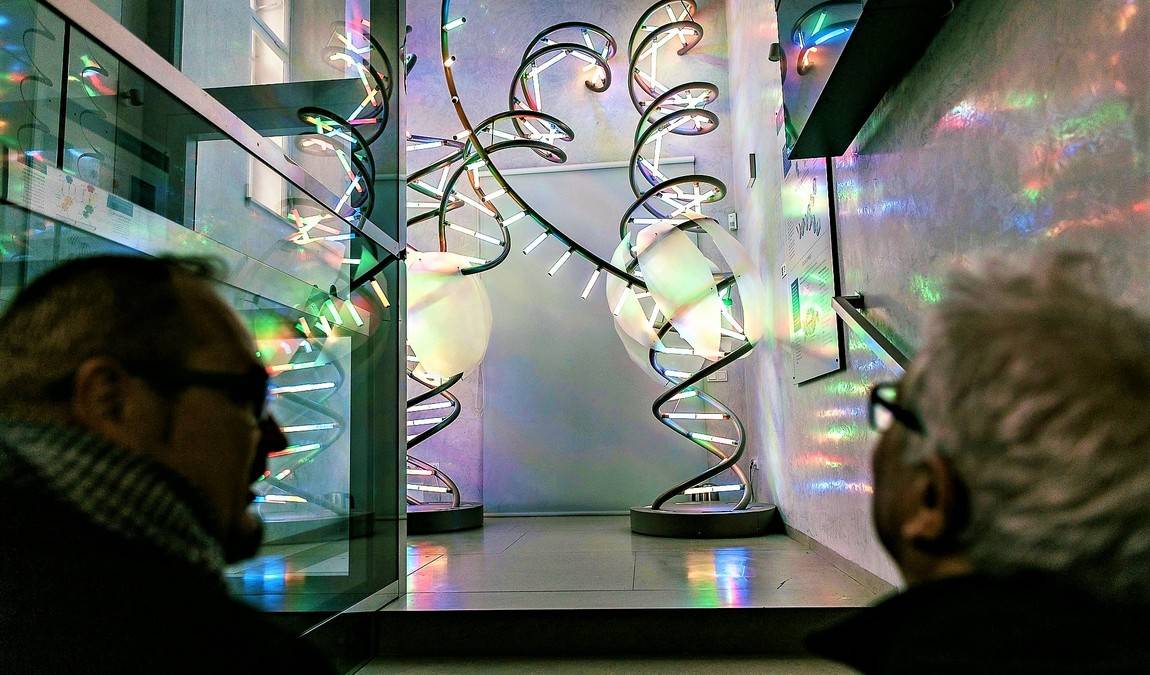 Photo: facebook.com/mendelianum
Photo: facebook.com/mendelianum
The cornerstone of the Mendel Museum is its Permanent Exhibitions, which bring to life the story of Gregor Mendel and his Experiments with Plant Hybrids. Visitors can explore interactive displays detailing Mendel's meticulous work with pea plants. Through authentic tools and historical documents, the exhibition subtly merges history with biology, educating guests on the significant contributions Mendel made to genetics. Highlighted sections include:
- Genetics & Mendel's Laws: This exhibit educates on the fundamental principles of Mendelian inheritance.
- Mendel's Garden: A living display that recreates the setting where Mendel's groundbreaking experiments occurred.
Temporary Exhibitions and Art
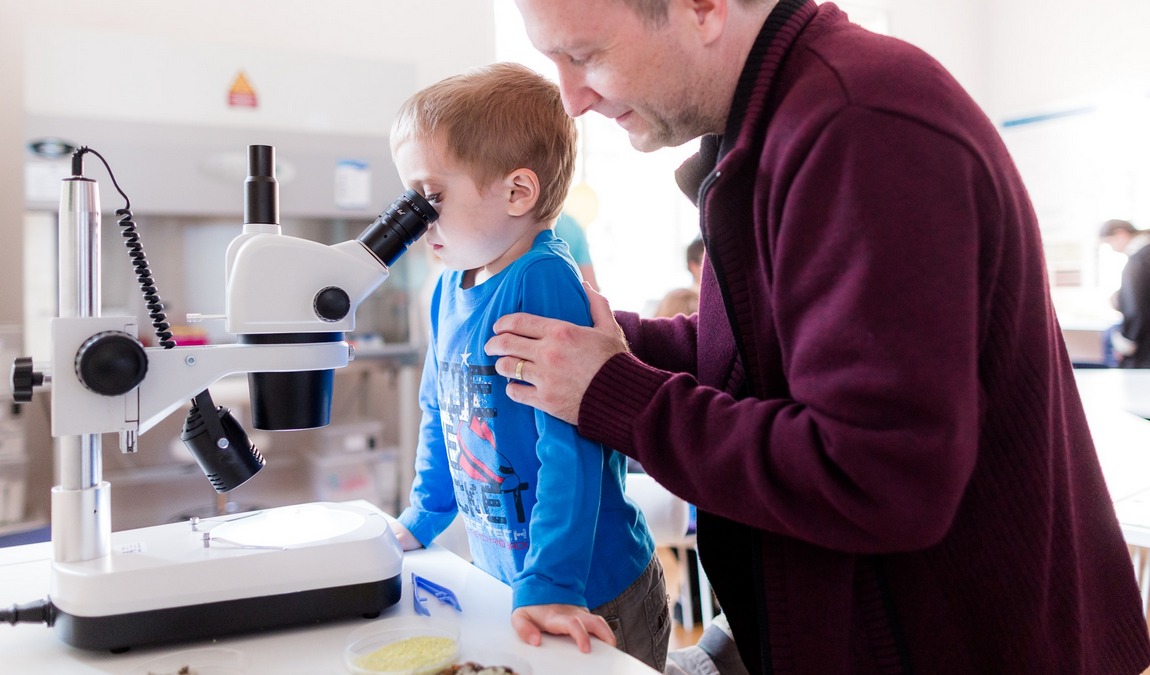 Photo: facebook.com/mendelianum
Photo: facebook.com/mendelianum
In addition to its scientific offerings, the museum presents an array of Temporary Exhibitions and Art that delve into a wide range of topics bridging science, art, and culture. These exhibitions are designed to inspire and educate, showcasing everything from contemporary biology-themed artworks to explorations of how science interacts with society. Highlights typically include:
- Rotating exhibits that fuse Art and Science through a modern lens.
- Educational programs that provide dynamic learning opportunities for children.
Research and Education
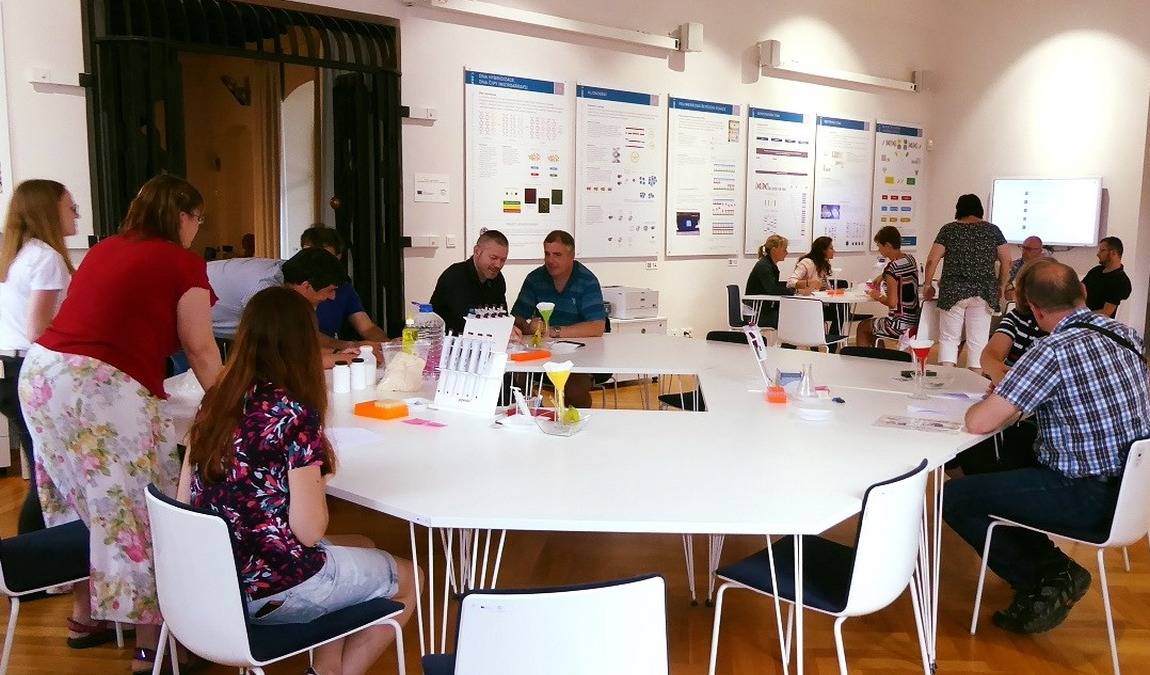 Photo: facebook.com/mendelianum
Photo: facebook.com/mendelianum
At the heart of the Mendel Museum experience is a staunch commitment to furthering knowledge in genetics and science. Aiming to foster curiosity in youngsters and adults, the museum's programs blend historical insights with modern-day scientific outreach.
Mendel Lectures are a cornerstone of the museum's educational outreach, honoring the legacy of Gregor Johann Mendel, often hailed as the "father of genetics."
Esteemed researchers and recipients of the prestigious Nobel Prize share their expertise in lectures spanning various scientific fields. This unique educational platform offers students and visitors an invaluable opportunity to immerse themselves in cutting-edge scientific discourse.
For families seeking an interactive learning environment, the museum's educational programs and workshops provide hands-on activities that engage participants in the wonders of genetics. Offered in collaboration with the Moravian Museum, these initiatives inspire students to explore a variety of scientific disciplines. Through thoughtfully designed experiences, children can conjure their inner scientists and delve deep into the building blocks of life that fascinated Mendel himself.
Mendel Museum Today
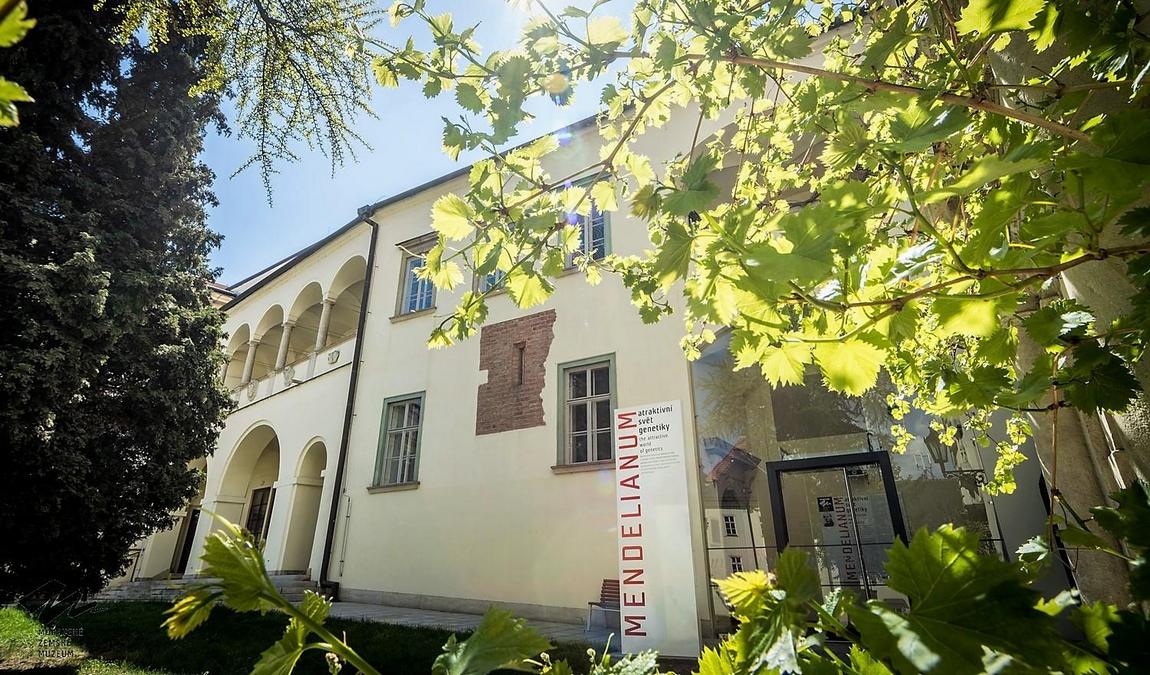 Photo: facebook.com/mendelianum
Photo: facebook.com/mendelianum
The Mendel Museum is a treasure trove of historical and scientific knowledge, celebrating the legacy of Gregor Johann Mendel. It is an integral part of the esteemed Masaryk University. It stands as a beacon for scientific enthusiasts and families looking to explore the roots of genetics.
Visitors can immerse themselves in the world of plant hybrids through interactive exhibits highlighting Mendel's groundbreaking work. His original greenhouse, where he meticulously cultivated pea plants, has been reconstructed to give a glimpse into his revolutionary experiments.
The museum also boasts an enchanting apiary reminiscent of the beekeeping activities once conducted by Mendel himself. This feature educates the public about the importance of bees in our ecosystem. It serves as a nod to Mendel's diverse scientific interests.
Highlights of the Mendel Museum
| Feature | Description |
|---|---|
| Exhibition Space | Engaging displays on Mendel’s life and the basics of genetics. |
| Reconstructed Greenhouse | Replica of Mendel’s workspace for his famous pea plant experiments. |
| Educational Programs | Lectures and activities tailored towards curious minds of all ages. |
| University Legacy | Showcase of how Masaryk University perpetuates Mendel's scientific spirit. |
| Apiary | A living exhibit demonstrating Mendel’s work with honeybees. |
With a family-friendly atmosphere, the museum is designed to educate and inspire. It provides a unique opportunity to connect with the past while understanding the scientific principles that shape our future.
Best Time to Visit
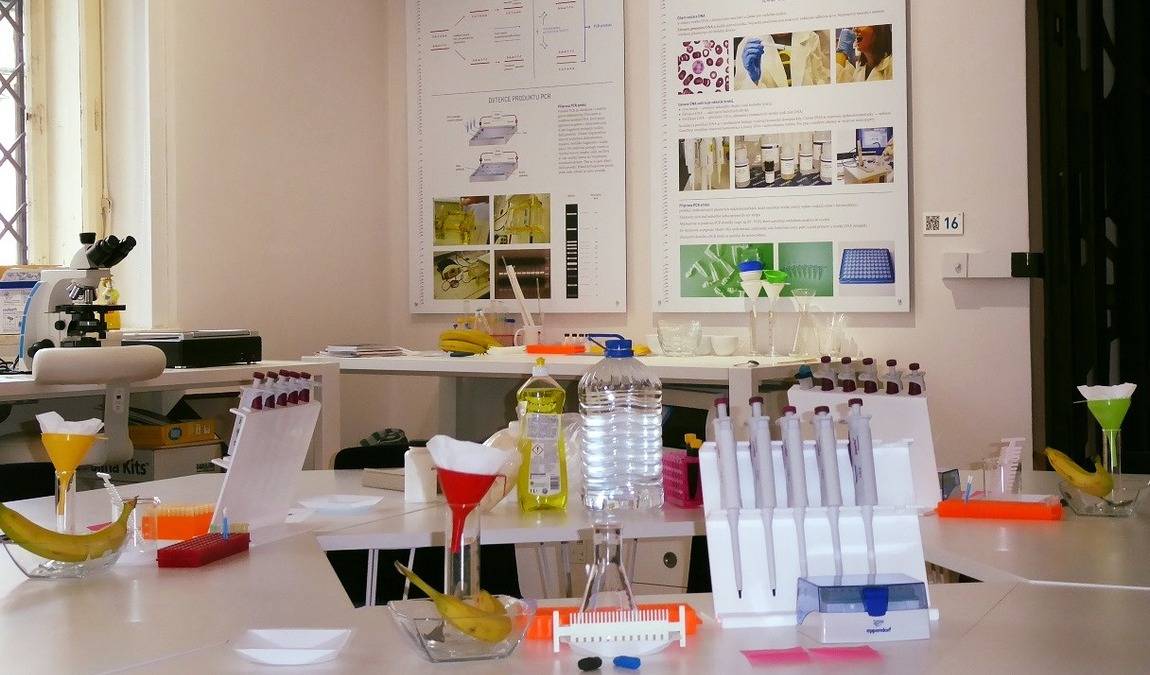 Photo: facebook.com/mendelianum
Photo: facebook.com/mendelianum
The museum, celebrated for its insightful exhibits on genetics and the life's work of Gregor Mendel, provides a kid-friendly educational environment.
For families traveling with children, the ideal time to visit is weekends, when the museum is less crowded and more conducive to leisurely exploration. An early start is recommended, as mornings are typically quieter, allowing families to engage more deeply with the exhibits. Aim to arrive shortly after opening at 10 am to make the most of the energized early hours.
Should your schedule only permit a weekday visit, opt for a Tuesday or Thursday afternoon. Schools often schedule field trips in the morning, so afternoons provide a more relaxed atmosphere, perfect for families wanting to avoid the bustling school crowds.
For those eager to enjoy the museum with minimal distractions, consider planning your visit in the spring or fall. These seasons balance pleasant weather and moderate visitor numbers, giving families the space and pace to appreciate the intricacies of Mendel's discoveries.
Additionally, the museum occasionally offers interactive workshops and educational programs suitable for children, enriching their visit with hands-on learning. Before planning your trip, checking the Mendel Museum's official event calendar ensures you take advantage of these unique opportunities.
Also visit VIDA! science centerrum, which is only 1 km from this museum
How Long Does It Take to Attend?
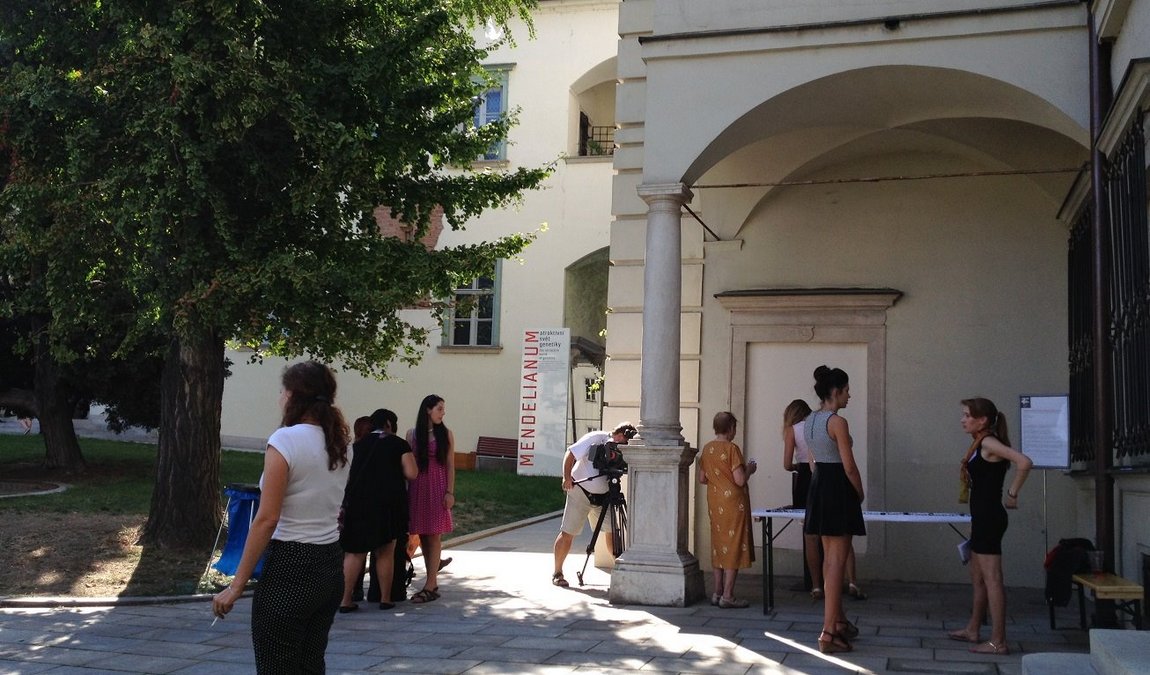 Photo: facebook.com/mendelianum
Photo: facebook.com/mendelianum
Visiting the Mendel Museum can be a delightful and educational experience for families. The amount of time spent at the museum varies depending on one's level of interest in genetics and the life of Gregor Mendel.
Typical Duration:
- Exhibits: Approximately 1 hour
- Garden: 30 minutes
- Café & Gift Shopping: 20-30 minutes
On average, families can expect to spend around 1.5 to 2 hours exploring the museum's exhibits, which illuminate the foundational work done by Mendel in the field of genetics. It includes time spent admiring the historical setting where Mendel performed his groundbreaking experiments with pea plants.
The adjoining garden where Mendel conducted his experiments adds an extra layer of authenticity to the visit and is perfect for a stroll that usually lasts about half an hour.
For a relaxing end to the museum tour, the onsite CaféMendel is an inviting space where visitors can enjoy refreshments and reflect on their learning experience. It, coupled with a browse through the museum's gift selections, provides a nice finishing touch to the visit.
One should note that the museum's opening hours are from Tuesday to Sunday, 10 am – 5 pm, which should help plan the visit.
Is Mendel Museum Worth Visiting?
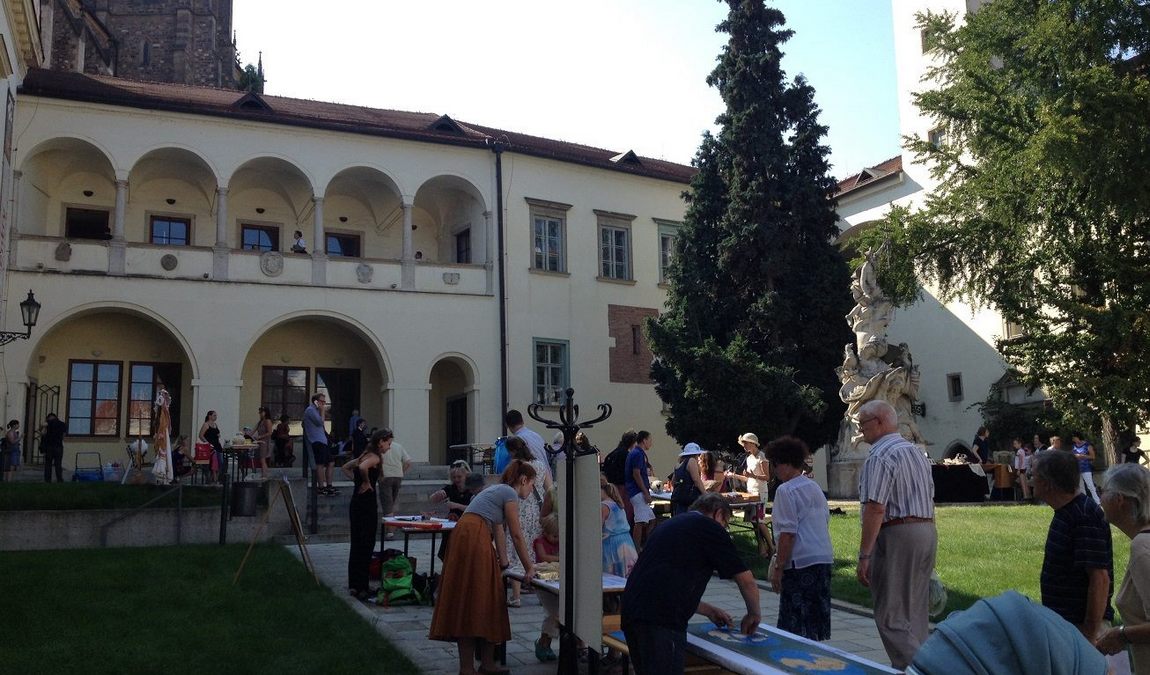 Photo: facebook.com/mendelianum
Photo: facebook.com/mendelianum
The Mendel Museum of Masaryk University should not be overlooked when considering a family-friendly educational attraction. Nestled in the historical city of Brno, the museum pays homage to Gregor Mendel, the father of genetics, who performed pioneering experiments with pea plants. The museum makes stimulating visits for families with curious children, balancing education and intrigue.
Key Highlights:
- Educational exhibits: Engaging and comprehensible displays explain Mendel’s scientific contributions.
- Interactive experiences: Children can grasp basic genetics through hands-on activities.
- Tranquil setting: Where Mendel conducted his research, the ambiance is historical and peaceful.
Mendel Museum is worth visiting for its enriching educational content, accessibility for kids, and unique insights into the life of a remarkable scientist. Children will benefit from the interactive learning environment, and the entire family will appreciate how well the essence of Mendel’s work is preserved and presented.
Reasons to visit Mendel Museum include:
- Original artifacts: Mendel’s tools and documents are showcased.
- Garden and observatory tours: A tactile connection to Mendel's experiments.
- Affordable Prices: Entrance fees are modest, making it an economical outing.


